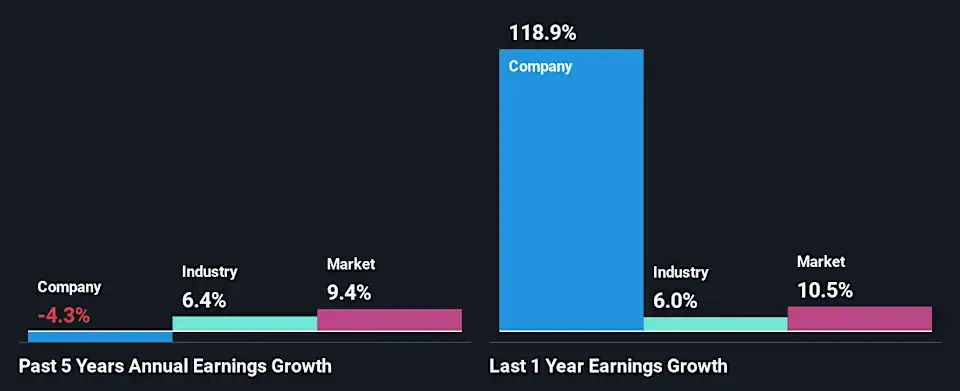
Genie Energy (NYSE:GNE) has had a rough month with its share price down 7.7%. Given that stock prices are usually driven by a company’s fundamentals over the long term, which in this case look pretty weak, we decided to study the company’s key financial indicators. In this article, we decided to focus on Genie Energy’s ROE.
Return on Equity or ROE is a test of how effectively a company is growing its value and managing investors’ money. Simply put, it is used to assess the profitability of a company in relation to its equity capital.
How Is ROE Calculated?
ROE can be calculated by using the formula:
Return on Equity = Net Profit (from continuing operations) ÷ Shareholders’ Equity
So, based on the above formula, the ROE for Genie Energy is:
3.7% = US$7.0m ÷ US$189m (Based on the trailing twelve months to September 2025).
The ‘return’ is the profit over the last twelve months. That means that for every $1 worth of shareholders’ equity, the company generated $0.04 in profit.
Why Is ROE Important For Earnings Growth?
Thus far, we have learned that ROE measures how efficiently a company is generating its profits. Depending on how much of these profits the company reinvests or “retains”, and how effectively it does so, we are then able to assess a company’s earnings growth potential. Generally speaking, other things being equal, firms with a high return on equity and profit retention, have a higher growth rate than firms that don’t share these attributes.
Genie Energy’s Earnings Growth And 3.7% ROE
It is hard to argue that Genie Energy’s ROE is much good in and of itself. Even compared to the average industry ROE of 9.1%, the company’s ROE is quite dismal. Given the circumstances, the significant decline in net income by 4.3% seen by Genie Energy over the last five years is not surprising. We reckon that there could also be other factors at play here. Such as – low earnings retention or poor allocation of capital.
However, when we compared Genie Energy’s growth with the industry we found that while the company’s earnings have been shrinking, the industry has seen an earnings growth of 6.4% in the same period. This is quite worrisome.
Earnings growth is an important metric to consider when valuing a stock. What investors need to determine next is if the expected earnings growth, or the lack of it, is already built into the share price. Doing so will help them establish if the stock’s future looks promising or ominous. Is Genie Energy fairly valued compared to other companies? These 3 valuation measures might help you decide.
Is Genie Energy Efficiently Re-investing Its Profits?
With a high three-year median payout ratio of 52% (implying that 48% of the profits are retained), most of Genie Energy’s profits are being paid to shareholders, which explains the company’s shrinking earnings. With only very little left to reinvest into the business, growth in earnings is far from likely. Our risks dashboard should have the 2 risks we have identified for Genie Energy.
In addition, Genie Energy has been paying dividends over a period of at least ten years suggesting that keeping up dividend payments is way more important to the management even if it comes at the cost of business growth.
Conclusion
In total, we would have a hard think before deciding on any investment action concerning Genie Energy. As a result of its low ROE and lack of much reinvestment into the business, the company has seen a disappointing earnings growth rate. That being so, the latest industry analyst forecasts show that the analysts are expecting to see a huge improvement in the company’s earnings growth rate. Are these analysts expectations based on the broad expectations for the industry, or on the company’s fundamentals?
